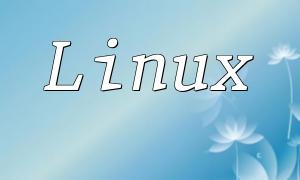Before optimizing your code for PHP 7.4 compatibility and improved performance, let’s first understand what PHP 7.4 is. PHP is a popular open-source scripting language widely used to generate dynamic web content. PHP 7.4 is a major version released in November 2019, introducing performance improvements, new language features, and enhanced security.
PHP 7.4 brings many benefits such as faster execution, better memory management, and richer language features. Ensuring compatibility not only future-proofs your code but also leverages these improvements for better performance. Key reasons include:
Compared to older versions, PHP 7.4 offers significantly better execution speed—often more than twice as fast as PHP 5.6. This means your applications run faster and respond more promptly on the same hardware.
PHP 7.4 introduces many new features like the null coalescing operator (??), which simplify and clarify code, making it easier to maintain. New predefined interfaces also help streamline common tasks such as JSON processing.
PHP 7.4 removes some outdated functions and modules such as magic_quotes_gpc and ereg. You should scan your code and replace these deprecated items to avoid runtime errors and warnings.
// Deprecated code in PHP 7.4
$old_array = array();
$new_array = [];
// Functions no longer supported
ereg('pattern', $string);
Type declarations enhance code readability and robustness. PHP 7.4 supports specifying parameter and return types in functions, promoting code consistency and better error checking.
// Parameter type declaration
function get_sum(int $a, int $b): int {
return $a + $b;
}
// Return type declaration
function get_array(): array {
return [1, 2, 3];
}
The null coalescing operator (??) simplifies checking variables for null or undefined values, allowing you to assign default values concisely.
// Using the null coalescing operator
$username = $_POST['username'] ?? 'guest';
Function call overhead is reduced in PHP 7.4, making calls to built-in functions like strlen(), array_key_exists(), and isset() more efficient, which is especially beneficial in performance-critical code.
PHP 7.4 introduces a JIT (Just-In-Time) compiler that compiles PHP code into machine code at runtime to improve performance. It is disabled by default and mainly effective in CLI mode.
// Enable JIT compiler example
php -dzend_extension=jit.so myscript.php
OPCache caches compiled PHP bytecode to reduce repeated compilation, speeding up script execution. OPCache is enabled by default in PHP 7.4, and you can optimize its settings through configuration files.
// OPCache configuration example
[opcache]
opcache.enable=1
opcache.memory_consumption=128
opcache.max_accelerated_files=10000
opcache.validate_timestamps=0
PHP 7.4 brings many useful features and performance enhancements. By making appropriate code adjustments and optimizations—such as adopting type declarations, the null coalescing operator, JIT compiler, and OPCache—you can ensure compatibility and significantly boost your PHP application’s efficiency and modernity.









